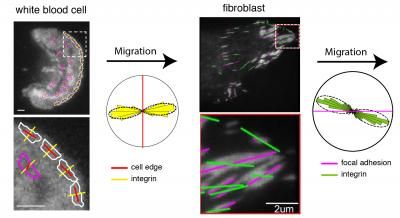Sanofi to acquire Principia Biopharma
Further strengthens core R&D areas of autoimmune and allergic diseases
Sanofi and Principia Biopharma Inc., a late-stage biopharmaceutical company focused on developing treatments for immune-mediated diseases, entered into a definitive agreement under which Sanofi will acquire all of the outstanding shares of Principia for $100 per share in cash, which represents an aggregate equity value of approximately $3.68 billion (on a fully diluted basis). The Sanofi and Principia Boards of Directors unanimously approved the transaction.

Symbolic image
pixabay.com
“This acquisition advances our ongoing R&D transformation to accelerate development of the most promising medicines that will address significant patient needs,” said Paul Hudson, Sanofi Chief Executive Officer. “The addition of multiple BTK inhibitors to our pipeline demonstrates our commitment to strategic product acquisitions in our priority therapeutic areas. Full ownership of our brain-penetrant BTK inhibitor ‘168 removes complexities for this priority development program and simplifies future commercialization.”
“The Phase 2b data in relapsing multiple sclerosis showed the strong potential of ‘168 to address disability and disease progression, and triggered the start of Phase 3 studies across the full spectrum of MS. Through this acquisition, we will be able to expand and accelerate development of BTK inhibitors across multiple indications. Both ‘168 and rilzabrutinib, have ‘pipeline in a product’ potential, and we look forward to unlocking their full treatment benefits across an array of diseases,” said John Reed, M.D., Ph.D., Global Head of Research & Development at Sanofi.
“Principia’s successful design and development of a whole portfolio of BTK inhibitors for immunology is aimed to transform the treatment for patients with immune-mediated diseases. By combining with Sanofi, we will bring significant resources to expand and accelerate the potential benefits of these therapies. The benefit of developing several BTK inhibitors will allow us to target specific organ systems for optimal patient benefit. The merger will provide global resources to get these novel therapies to patients faster,” said Martin Babler, President and CEO at Principia Biopharma.
Principia’s Bruton tyrosine kinase (BTK) inhibitors add to Sanofi’s efforts to accelerate and build a portfolio of the next generation of transformative treatments for autoimmune diseases. BTK is present in the signaling pathways of key innate and adaptive cell types of the immune system. Being able to block or disrupt these signaling processes can help in stopping inflammation and tissue destruction related to autoimmune diseases and target some of the underlying pathophysiology.
Most read news
Organizations
Other news from the department business & finance

Get the life science industry in your inbox
By submitting this form you agree that LUMITOS AG will send you the newsletter(s) selected above by email. Your data will not be passed on to third parties. Your data will be stored and processed in accordance with our data protection regulations. LUMITOS may contact you by email for the purpose of advertising or market and opinion surveys. You can revoke your consent at any time without giving reasons to LUMITOS AG, Ernst-Augustin-Str. 2, 12489 Berlin, Germany or by e-mail at revoke@lumitos.com with effect for the future. In addition, each email contains a link to unsubscribe from the corresponding newsletter.
Most read news
More news from our other portals
Last viewed contents
Category:Aromatic_amino_acids
List_of_diseases_(K)

Live-cell microscopy reveals cell migration by direct forces
P35_(gene)
New Helmholtz Institute for Metabolism Research in Leipzig
Wilson's_disease
List_of_pharmaceutical_compound_number_prefix

French startup startup transforms human urine into microbial plant biostimulants - Toopi Organics awarded €8.4M to spread urine upcycling for agriculture across the EU

SRI spins off AI-powered drug discovery platform Synfini, Inc. - Synfini to commercialize and scale automated compound testing for rapid drug production
Medicines_and_Healthcare_products_Regulatory_Agency





















































